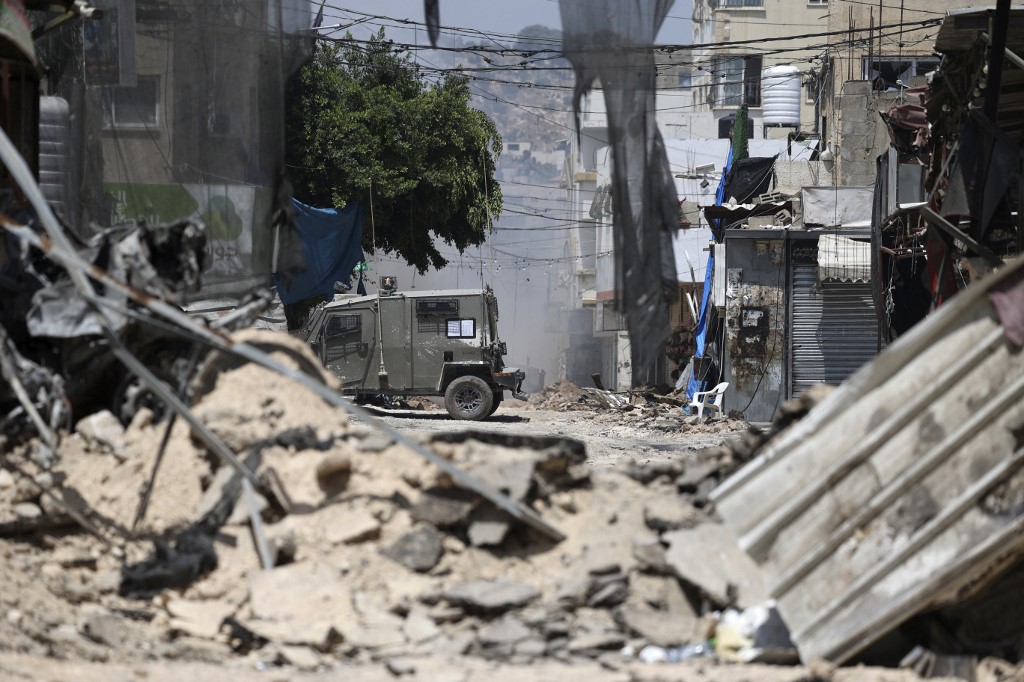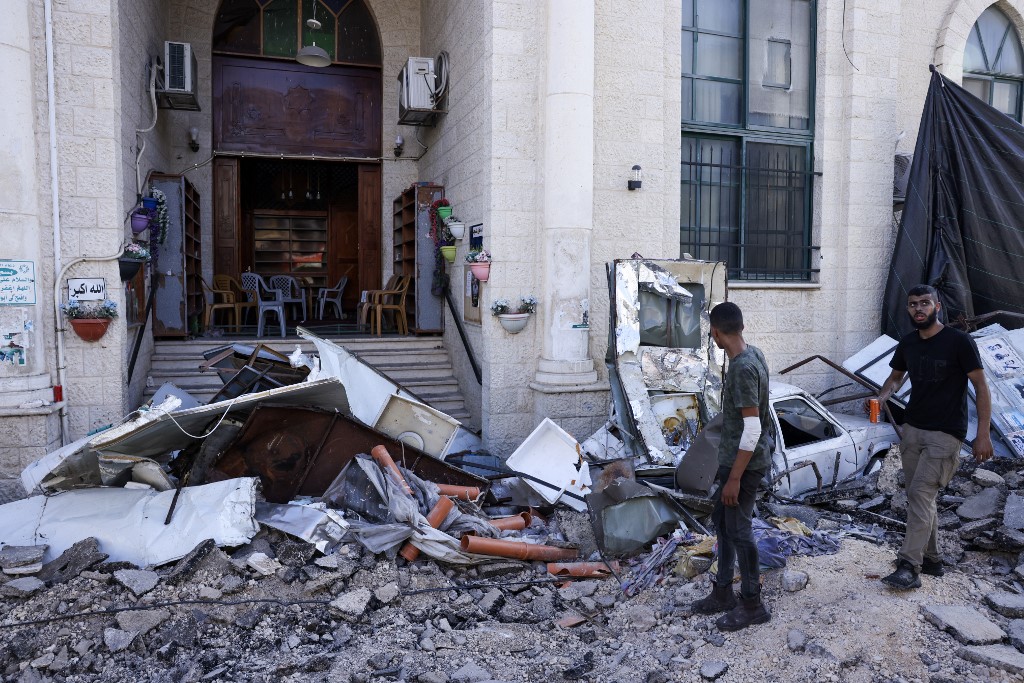Jenin raid: An eyewitness account of Israel’s large-scale offensive

As told to Nadda Osman
The scenes on Monday morning were quite literally terrifying. I was with my colleague in the Jenin camp, and we were the only camera people there throughout the night.
The only way to describe the scenes is an earthquake. It looked like an earthquake had struck the Jenin camp. The roads were completely obliterated, ambulances could not get through, wounded people had to walk.
People inside their homes were crouching down and peeking out from the windows. You could just see the top of people’s heads because they were trying to avoid being shot through the windows.
Whenever I’d walk past a house, I could hear the sound of crying and wailing.
Stay informed with MEE's newsletters
Sign up to get the latest alerts, insights and analysis, starting with Turkey Unpacked
By 7 am, Israeli forces had covered the streets and destroyed them. We sought refuge in a house close to an UNRWA office in the camp. I placed the camera down by the doorway and stood next to it, but as soon as I saw an Israeli jeep come down the road I threw myself into the house.
Inside the house, live bullets were fired at us from every direction. I could see my camera at the doorway around one metre away, and it was being repeatedly shot.
After the live fire stopped, I stepped outside to see what was going on but the jeeps came back and started firing again, until they were sure that all the equipment was destroyed.
At this point it felt like we were going to be killed at any moment, right where we were.
We were in a house where more than one family had gathered for safety, some of them were hiding under the stairway and in cupboards. We stayed like this for two hours.
Our head office at Al Araby TV was able to get in contact with the Red Cross, who reached out to us and I told them where we were located, and that we were stuck here.
We tried to see if we could leave with ambulances, but they told us it would be difficult because they could be targeted with live fire.
Eventually we were able to leave, but it was a horrible experience. If we had not made the decision to go into that house, we would have all been killed.
The scenes in Jenin have been terrifying. There is live fire in every direction, and homes are being demolished.
The sound of screams are hard to forget. They keep being replayed in my head.
'The sound of screams are hard to forget. They keep being replayed in my head'
The biggest shock was when the Israeli forces came out of the jeeps and started firing bullets at us and our cameras when they saw us.
Everyone has heartbreaking stories here.
A Palestinian man came up to me and my colleague and told us that he has lost his son, and can’t find him amid the chaos. He was explaining that he doesn’t know if he had been arrested or what. This morning we found out that his son had been killed by Israelis in an agricultural area nearby.
The scenes in the Jenin camp now are devastating. There are wires mixed with broken roads and flooded areas. People don’t have water or electricity and people are sleeping out in the streets and in hospitals. You can hear the sound of drones, explosions and live fire.
People are running in the streets frantically searching for their loved ones, and a lot of children who have lost contact with their families are now staying with their relatives.
Middle East Eye delivers independent and unrivalled coverage and analysis of the Middle East, North Africa and beyond. To learn more about republishing this content and the associated fees, please fill out this form. More about MEE can be found here.






